Rosemary Rodriguez is the most recently elected community representative to the Gates Family Foundation board of trustees, having started her term in January 2021. She brings a lifelong commitment to public service – most recently as the founder and Executive Director of Together We Count, a nonprofit that advocates for fair representation in the U.S. Census – and was one of six individuals honored in 2020 with a Colorado Governor’s Citizenship Medal for Public & Community Service. (Read Rosemary’s full biography here.)
Rosemary recently sat down with Melissa Davis, Gates Vice President of Strategic Communications and Informed Communities, for a conversation that illuminated her long and illustrious career:
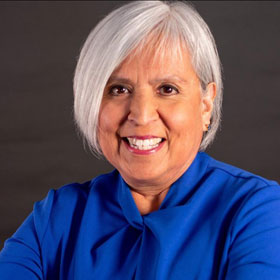
This is a new world for me, being on this side of philanthropy. I’ve been involved in government and nonprofits for so many years, and on many boards – so I know Gates from those perspectives. What I like best about Gates is the accessibility and the openness. When I came to Gates to talk about the importance of the U.S. Census (for Together We Count), I met a whole group of the staff – not just one funding officer. It told me that Gates was taking this really seriously. I’ve also gotten to know some of the staff very well – Mary (Seawell, Senior Vice President for Education) and her work with innovation schools, and Ana (Soler, Senior Program Officer for Education) was an advisor to one of the organizations I founded – she also facilitated the first meeting of our advisory board. And of course Tom has such a great reputation. So I just had a good impression about the people at Gates. The support and partnership that we got even before we were funded was, I think, really remarkable.
Why is fair representation in the U.S. Census important to you personally, and to Colorado? What have you learned since founding the organization?
The Census is a point in time where we try to capture a photograph of our state – who lives here, and what are their demographic facts. As a society, who we serve as a state gets a lot of weight in setting policy and decision making, and the Census forms the baseline for all that data. I’ve always volunteered for the Census, so 2020 was my fourth time being really involved. Prior to 2020, I was serving on the school board for Denver Public Schools – I saw there were parents who wouldn’t give the district their phone numbers or address, because of their fear of government. When I realized that, my mind went immediately to the Census – if they’re not going to give information to the school district, why would they give it to the federal government? The Census is not asking for financial data, so it might not seem too invasive – but my fears were confirmed when the Census did research and found that many people didn’t want to answer the questions. They did an attitudes survey prior, and realized they were going to have a tough time. With that affirmation, I designed a project with a young colleague that would push against this trend – and we took it around, and got enough interest to create Together We Count.
Fortunately we had national partners – the Leadership Conference on Civil and Human Rights was thinking along the same lines. So we became a part of their “kitchen cabinet.” They did attitudinal research in a variety of demographics – Asian, African-American, Latino. In Colorado, we also added a population segment – we added older adults, because this was the first time the census was going to be online. Just in talking to people, we realized lot of older adults did not have access to the internet – so how would they trust the computer? The Colorado Fiscal Institute did an estimate of all the hard-to-count populations, and included older adults in their modeling – we ended up being one of the only states that had older adults in our official model. After we made a presentation to our national groups, Florida added older adults in its modeling for obvious reasons. We’re always trying to look around corners, and that has really helped – so once the pandemic hit, right at the beginning of the Census going door-to-door, we already had a number of grantees serving older adults who could do special outreach to them. We couldn’t have had that in the works if we hadn’t anticipated the difficulty of reaching them to begin with.
In this moment in our nation’s history, there is a significant level of mistrust of institutions – government, the media, even religion to some extent. What are the implications for our democracy? How do we rebuild trust – if not at the national level, in our communities and among our neighbors?
I think a lot depends on the messenger. That again is a model that we developed with the Census work. If I go out and talk about people trusting the U.S. Census, nobody will believe me as a former politician. But in the Latino community, people have a high level of trust in medical professionals. So if your doctor or nurse or someone who checks you into the clinic talks to you about voting or the Census or the COVID vaccine, for example – community members trust them more than they would a talking figure. So I think the model of using nonprofits to distribute trustworthy information makes sense. People trust educators. People trust those they worship with. People trust the elders in their family. This again underscores the importance of communicating with older adults: If your grandmother or grandfather wants you to vote, you may be more likely to vote than if you see a commercial.
You were an elected school board member for Denver Public Schools from 2013 to 2017 – what opportunities do you see for the Foundation to make an impact in the public education sector in Colorado?
I think that’s the million-dollar question, especially post-pandemic as we try to give kids a year back. How are we going to overcome this breach in their educational experience? And not just the academic disruption, but the social disruption and the impact on their physical and mental health as they can’t participate in sports or see friends. In Colorado this also coincides with a number of our largest school districts, including Denver Public Schools, searching for a new superintendent. This leadership transition in the midst of a public health crisis has a huge impact on the biggest districts in our state. There are many noble efforts to support the schools, but what is the right lever to be pushing? How do we know what will make the right impact? I know we have a lot of competing crises in the past year due to COVID, but K-12 education has to be a top priority.
What has inspired you to live the life of public service that you have?
My parents were a huge influence. My father worked for the federal government and was very involved with our church, helped start a credit union, was a Boy Scout leader. My mother was more political – she volunteered for campaigns, did all the political work that he couldn’t do as a government employee. So I had this social model and this political model – so it was always very important to me personally that I try to make my community a better place. And my whole involvement in the Census – it got started because Rich Castro (education and civil rights activist) and I were on a committee together. Right after he died in 1989 (at age 45), Ken Salazar, Henry Solano – all friends of Rich – we got together for a beer. We said, “We can honor him by continuing his work.” Somebody made a list of all his projects, and I volunteered for the Census – so in 1989 I started going to meetings all over the state, talking about how important it was. None of us got paid – we just picked up a project and completed it. So a lot of my involvement in this work I have to credit to him. Also, before Rich died, he used to teach a leadership class for MALDEF (the Mexican American Legal Defense and Educational Fund). I look around at the people I took that training with – they are all now established leaders in the state. Sometimes it takes somebody telling you that you can influence things – and then as an individual, you have to believe it. Rich told me, and I believed it.
How are you passing on the values of civic and community leadership to your own family?
It’s amazing because my son, who is an investment banker, is very civically engaged. He just ended a term as the chair of the Denver Downtown Partnership, which has a big focus on affordable housing – but his first involvement in community service after college was with Urban Peak, a nonprofit that works with homeless teenagers. So very early on he developed a sense of civic responsibility. And my son’s daughter, my only grandchild– she’s the light of our lives, for all of us. She wants to study social impact in university, and she’s been accepted to a couple of programs abroad – one in the Netherlands, one in Australia, and we haven’t heard yet from the U.S. Right now she’s a senior at East High School. There was a story right at the beginning of this school year about date rape at East – so she and her friends started the Women of East Club. They developed some recommendations for teaching the freshmen class about consent, and why it’s important – not just for the females but also for the male members of the class. And the school has adopted those recommendations.
Anything else you’d like to share with Gates partners, board members, family members, and others who read this article?
The reputation of Gates as I was growing up was so respected. The plant was enormous, of course. But you just knew that if your parents worked at Gates, they had a good job. And it’s a coincidence, because the plant moved to Iola, Kansas – that’s my father’s birthplace. My grandfather worked for the Portland Cement Company there. So the Iola connection is funny – but I remember that when the family still ran the company, the stories about the wonderful Christmas parties they hosted for their employees. It made a big impression for some reason. I really think Gates did a lot to help the rising middle class in Colorado. So that is really something to note and be proud of.


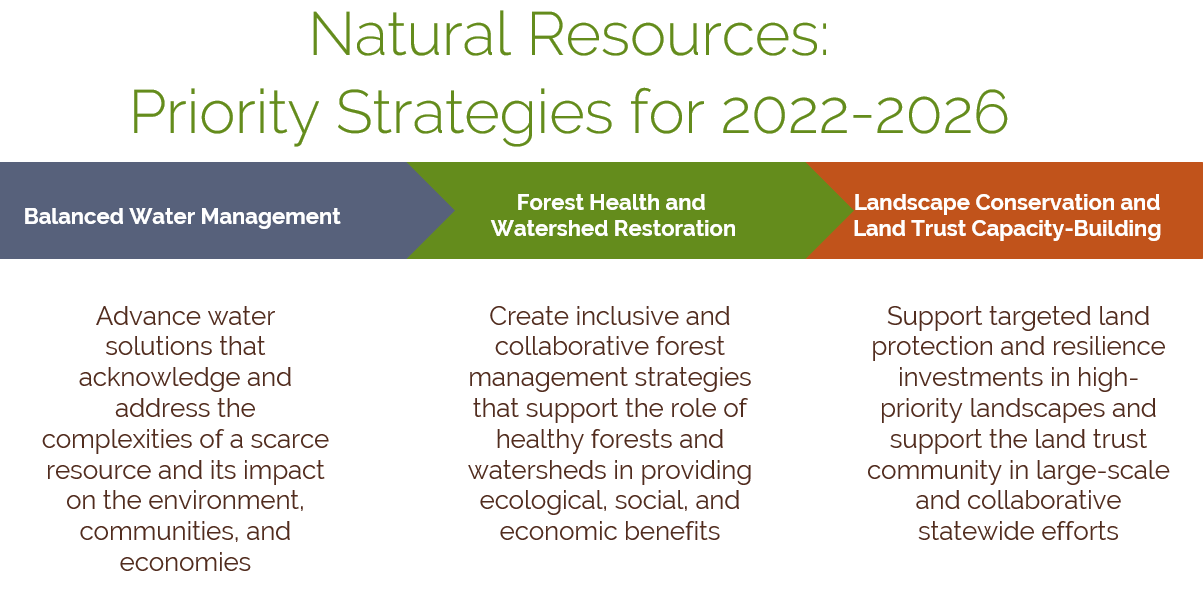

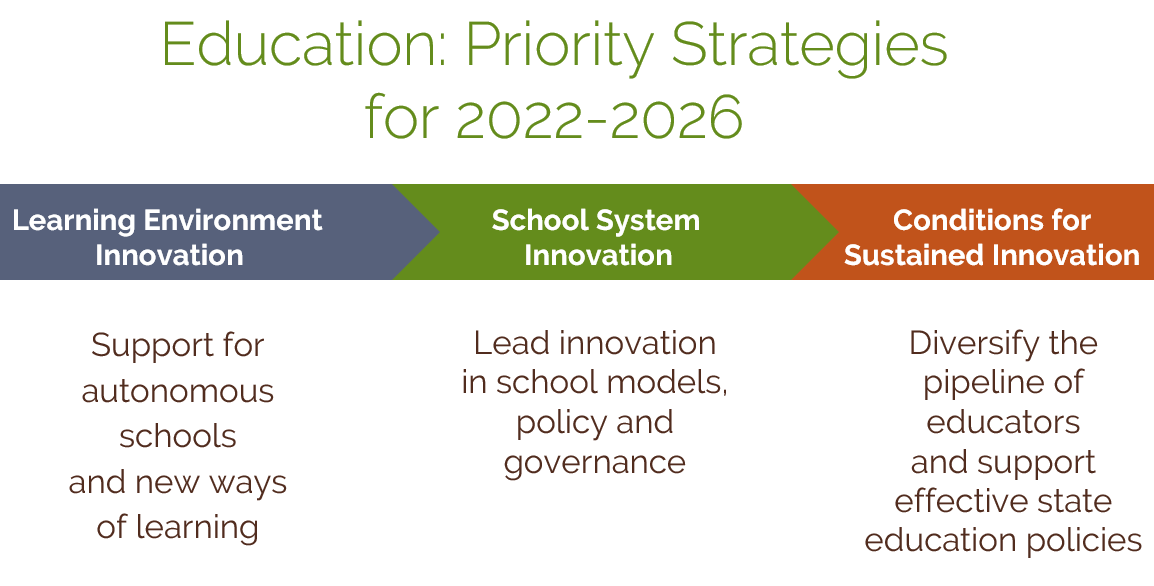

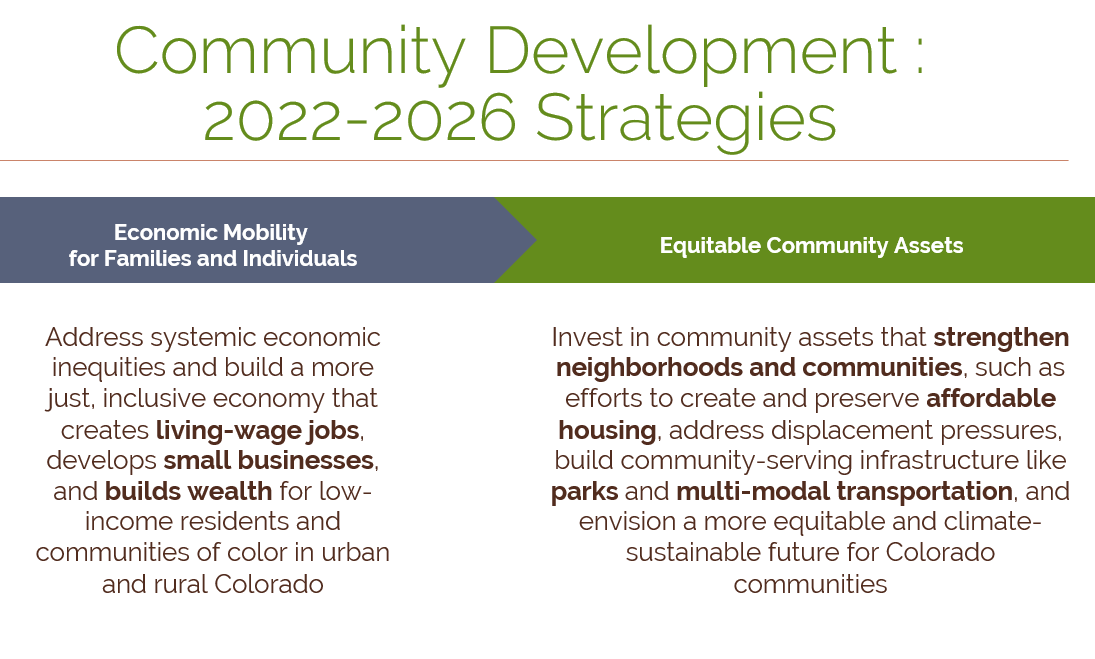
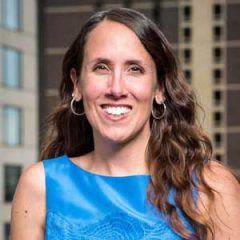
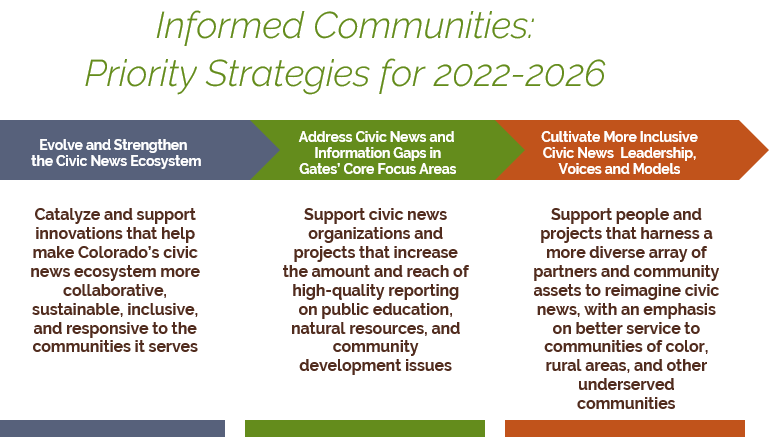
 Finally, also in 2023 a total of $410,956 previously committed by Gates to the
Finally, also in 2023 a total of $410,956 previously committed by Gates to the 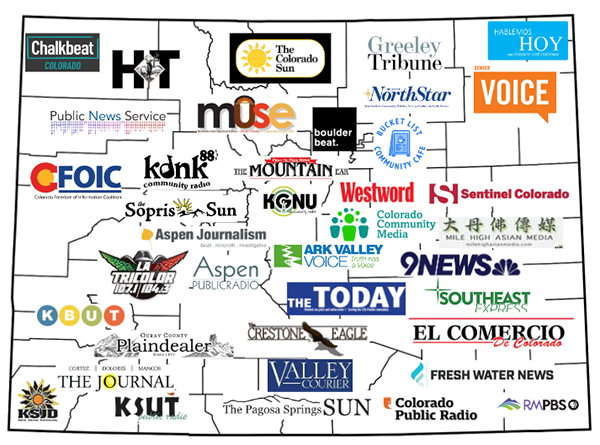 A total of $1,110,956 committed to the
A total of $1,110,956 committed to the 
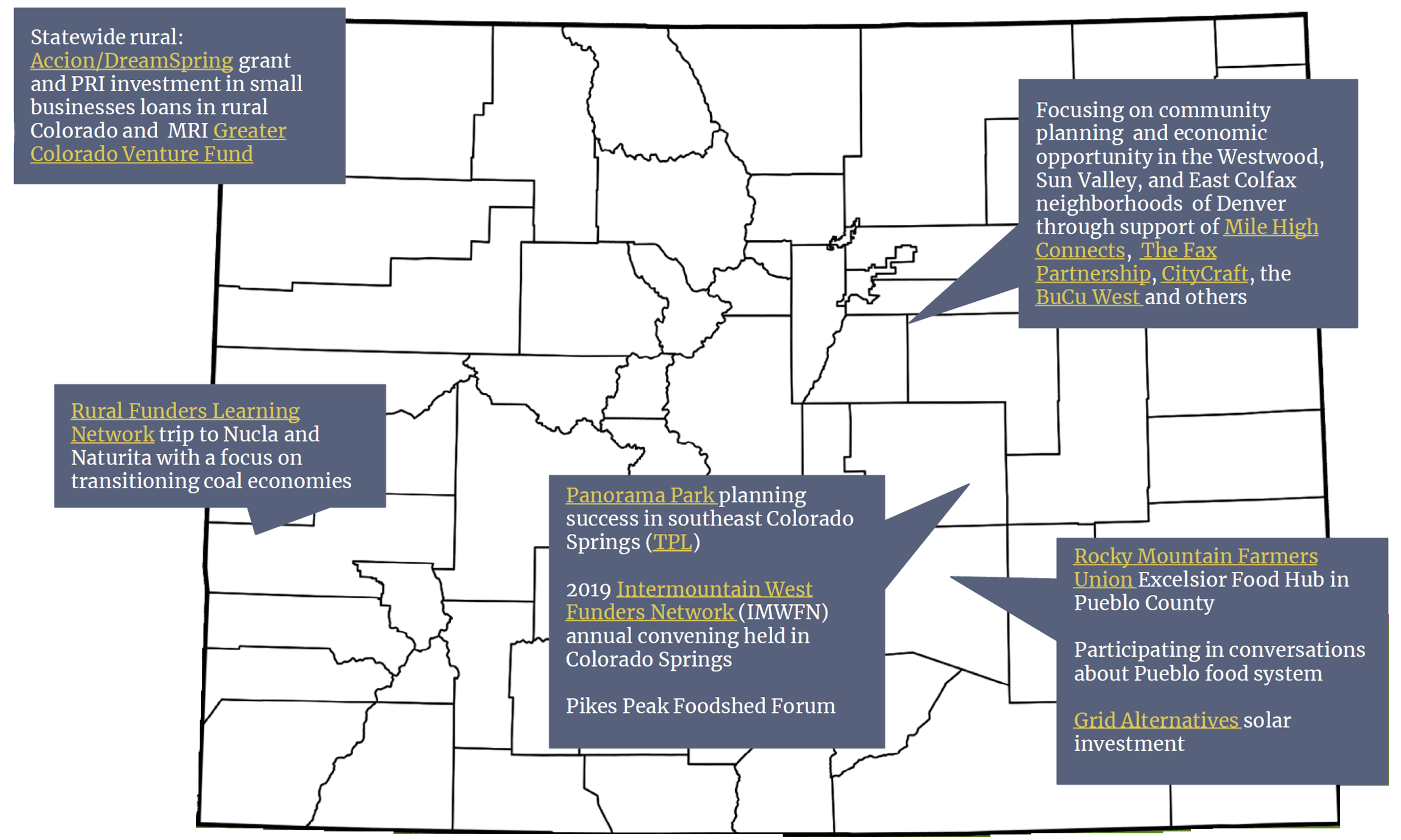 In 2019, the Community Development program committed $932,500 in strategic grants to 13 organizations and $465,000 in responsive capital grants to 12 organizations. New impact investments supporting vibrant communities in 2019 included a $500,000 MRI to
In 2019, the Community Development program committed $932,500 in strategic grants to 13 organizations and $465,000 in responsive capital grants to 12 organizations. New impact investments supporting vibrant communities in 2019 included a $500,000 MRI to 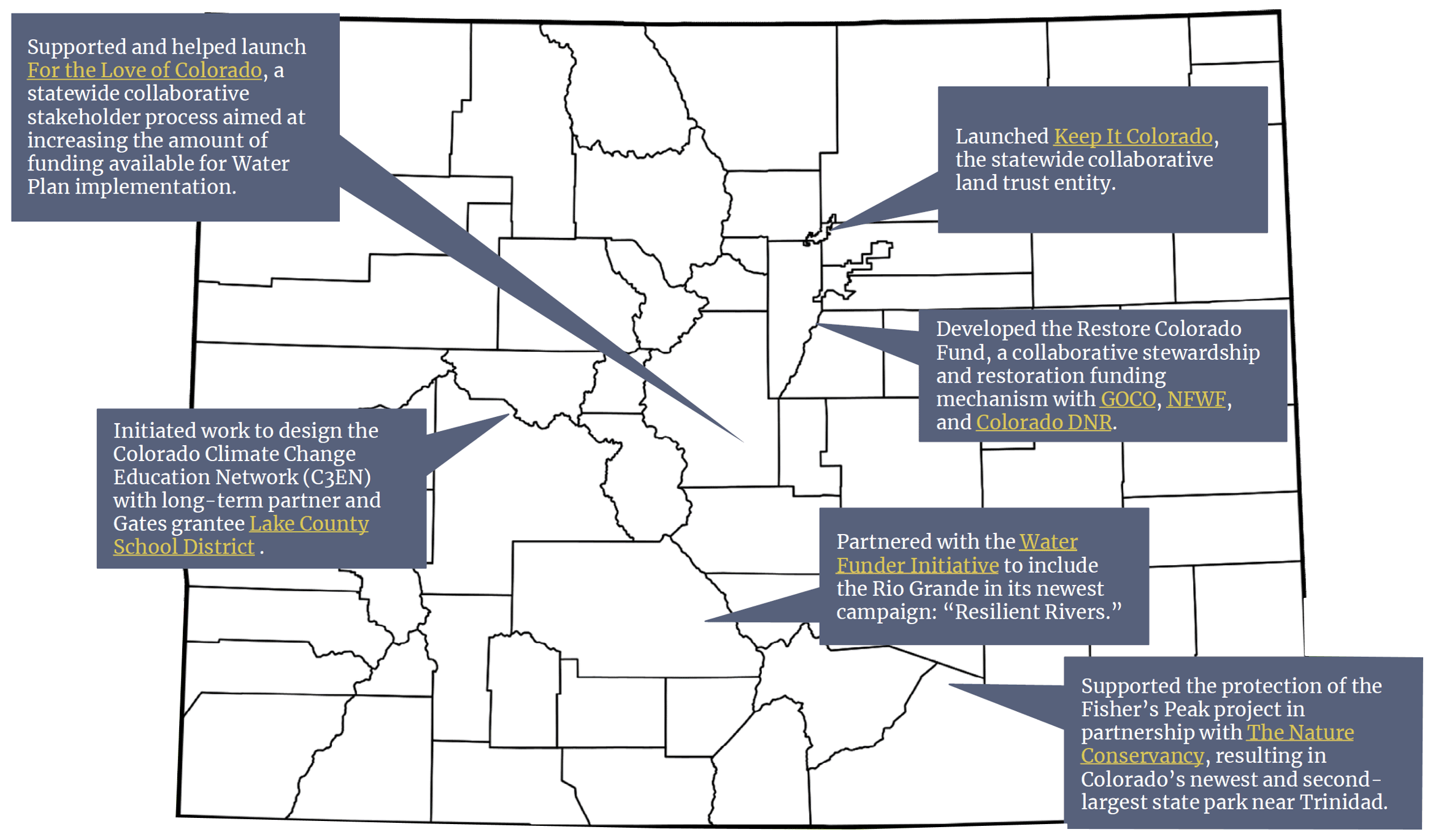 Our Focus Landscapes initiative, a key element of our Natural Resources program, underwent a comprehensive review, revision, and re-launch in 2019. This initiative was launched in 2011 to help Colorado achieve landscape-scale conservation through the protection of private lands in specific geographies. A great deal of progress was made in North Park, southeast Colorado, and the San Luis Valley, resulting in more than 200,000 acres of farm and ranch lands conserved, along with their associated ecological values. The strategic review process was done in close partnership with the land trust organizations representing those geographies, providing lessons-learned and an exploration of emerging opportunities. The revised Focus Landscapes initiative will first focus on two geographies:
Our Focus Landscapes initiative, a key element of our Natural Resources program, underwent a comprehensive review, revision, and re-launch in 2019. This initiative was launched in 2011 to help Colorado achieve landscape-scale conservation through the protection of private lands in specific geographies. A great deal of progress was made in North Park, southeast Colorado, and the San Luis Valley, resulting in more than 200,000 acres of farm and ranch lands conserved, along with their associated ecological values. The strategic review process was done in close partnership with the land trust organizations representing those geographies, providing lessons-learned and an exploration of emerging opportunities. The revised Focus Landscapes initiative will first focus on two geographies: